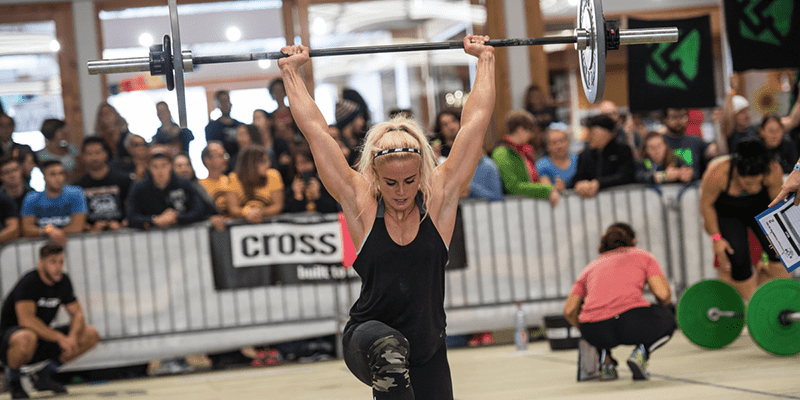Check out this interesting insight into a fun but real challenge that everyone can try.
Scroll down to the video for the full account.
What are the Health Benefits of Running?
Running is one of the most popular forms of exercise and has numerous health benefits. Some of the health benefits of running are:
Improved cardiovascular health: Running is a great way to improve cardiovascular health as it strengthens the heart muscle and improves blood circulation.
Weight loss: Running is an effective way to burn calories and lose weight. Running can help you burn a significant amount of calories and maintain a healthy weight.
Improved bone health: Running is a weight-bearing exercise that can help improve bone density, which can reduce the risk of osteoporosis.
Improved mental health: Running can help reduce stress, anxiety, and depression by releasing endorphins, which are natural mood boosters.
Reduced risk of chronic diseases: Regular running can help reduce the risk of chronic diseases such as type 2 diabetes, high blood pressure, and heart disease.
Improved immune system: Running can help boost the immune system by increasing the production of white blood cells, which help fight off infections and diseases.
Increased longevity: Studies have shown that regular runners tend to live longer than non-runners.
Video – What Happens to your Body When You Run 5km Every Day for 30 Days?
Why is A Fitness Challenge a Fun Idea?
A fitness challenge is a fun idea for several reasons:
- Motivation: A fitness challenge can provide the motivation needed to start or maintain a fitness routine. The challenge can provide a specific goal or target to work towards, which can make the fitness journey more enjoyable and fulfilling.
- Accountability: Participating in a fitness challenge can provide a sense of accountability as you are often working with a group or partner towards a common goal. This can help you stay on track and committed to your fitness goals.
- Variety: Fitness challenges often involve a variety of exercises or activities, which can make the workout more interesting and fun. This can help prevent boredom and keep you engaged in your fitness routine.
- Community: Participating in a fitness challenge can provide a sense of community and support as you are working towards a common goal with others. This can help build social connections and create a positive environment for fitness and health.
- Achievement: Completing a fitness challenge can provide a sense of achievement and accomplishment. This can help boost confidence and self-esteem, which can have a positive impact on other areas of life.
Overall, a fitness challenge can be a fun way to improve fitness and health, while also providing motivation, accountability, variety, community, and a sense of achievement.
What Muscles Does Running Improve?
Running is an excellent form of aerobic exercise that can help improve the function and strength of several muscles throughout the body. Some of the key muscles that running can help improve include:
Leg muscles: Running primarily works the muscles of the legs, including the quadriceps, hamstrings, calves, and glutes. These muscles work together to propel the body forward while running.
 Source: RX’d Photography
Source: RX’d PhotographyCore muscles: Running also engages the muscles of the core, including the abdominals, obliques, and lower back muscles. These muscles help stabilize the body and maintain proper posture while running.
Arm muscles: Although the arms are not the primary muscles used during running, they still play a role in maintaining balance and momentum. Running can help improve the strength and endurance of the arm muscles, including the biceps, triceps, and shoulders.
Hip muscles: The hip muscles, including the hip flexors and abductors, are also involved in running. These muscles help lift the legs and maintain proper alignment during each stride.
Back muscles: Running can help improve the strength and endurance of the muscles of the back, including the erector spinae and latissimus dorsi. These muscles help maintain proper posture and stability while running.
Overall, running can help improve the strength and function of several key muscles throughout the body, which can have numerous health benefits.
How Does Running Improve the Cardiovascular System?
Running is an excellent form of aerobic exercise that can provide numerous benefits for the cardiovascular system. Here are some of the ways that running can improve cardiovascular health:
- Increased heart rate: Running raises the heart rate, which strengthens the heart muscle and improves its ability to pump blood throughout the body.
- Improved blood flow: Running helps improve blood flow by increasing the diameter of blood vessels and reducing inflammation. This allows for more efficient delivery of oxygen and nutrients to the body’s tissues.
- Lowered blood pressure: Running can help reduce blood pressure by improving the elasticity of blood vessels, reducing inflammation, and improving overall cardiovascular health.
- Reduced risk of heart disease: Regular running has been shown to reduce the risk of heart disease by improving cholesterol levels, reducing inflammation, and strengthening the heart muscle.
- Improved lung function: Running can improve lung function by increasing the volume of air that the lungs can take in and expel. This allows for more efficient exchange of oxygen and carbon dioxide during exercise.
- Increased endurance: Running can help improve endurance by strengthening the cardiovascular system, allowing for longer periods of sustained activity.
Overall, running is an excellent form of exercise for improving cardiovascular health. Regular running can help reduce the risk of heart disease, improve lung function, increase endurance, and provide numerous other health benefits.
What are the Benefits of Healthy Habits?
Developing and maintaining healthy habits can provide numerous benefits for both physical and mental health. Here are some of the benefits of healthy habits:
Improved physical health: Healthy habits such as regular exercise, eating a balanced diet, getting enough sleep, and avoiding harmful substances can help improve physical health and reduce the risk of chronic diseases.
Improved mental health: Healthy habits can also help improve mental health by reducing stress, anxiety, and depression. Regular exercise and getting enough sleep have been shown to be particularly effective for improving mental health.
Increased energy and productivity: Adopting healthy habits can also increase energy levels and improve productivity, allowing for more efficient completion of daily tasks and activities.
Improved self-esteem: Developing healthy habits and making positive changes in one’s life can lead to a sense of accomplishment and improved self-esteem.
Better relationships: Healthy habits such as good communication skills, active listening, and empathy can help improve relationships with others and enhance overall social well-being.
Longer lifespan: Developing and maintaining healthy habits has been linked to a longer lifespan and reduced risk of premature death.
Overall, healthy habits can provide numerous benefits for both physical and mental health, improve energy and productivity, increase self-esteem, enhance relationships, and promote a longer and healthier life.
Learn More
What Happens to Your Body When You Walk 10,000 Steps Every Day for 30 Days?
8 Healthy Morning Habits to Lose Belly Fat Quickly
STOP USING THE BENCH PRESS! 3 Better Movements to Force Huge Chest Growth
Source link: https://www.boxrox.com/what-happens-to-body-when-you-run-5km-every-day-for-30-days-fire/ by Robbie Wild Hudson at www.boxrox.com






